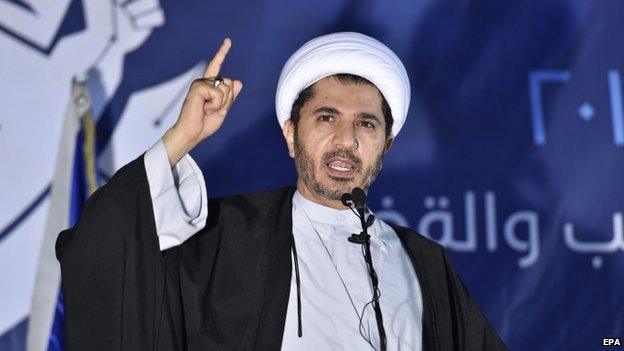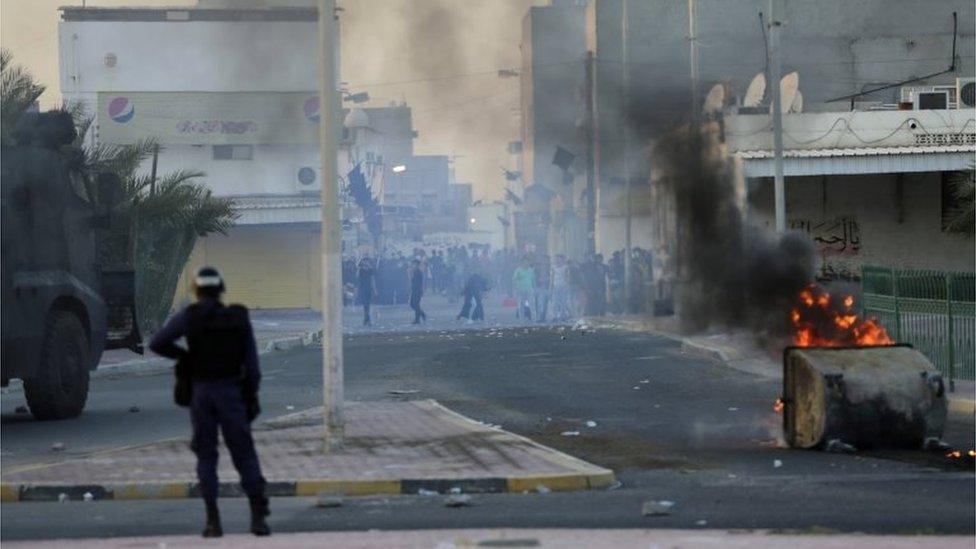Bahrain extends opposition leader Sheikh Ali Salman's jail term
- Published

Sheikh Salman leads the main Shia opposition movement in Bahrain
An appeals court in Bahrain has increased from four to nine years a prison sentence imposed on the country's main Shia opposition leader.
Sheikh Ali Salman was convicted in 2015 of inciting hatred and disobedience and insulting public institutions.
His al-Wefaq bloc says, external the ruling is "unacceptable and provocative" and that it would worsen a political crisis.
The Sunni-ruled Gulf state has grappled with sporadic unrest since putting down mass Shia-led protests in 2011.
Sheikh Salman's original sentence drew condemnation from human rights groups, as well as the United States and Iran.
He had been found guilty of charges relating to "publicly inciting hatred, an act which disturbed public peace, inciting non-compliance with the law and insulting public institutions", Bahrain's state news agency BNA said, external at the time.
His lawyers appealed, saying that evidence presented by prosecutors included parts of speeches that had been taken out of context, Reuters news agency reported.
Prosecutors responded with their own appeal, and asked the court to reverse an earlier acquittal on more serious charges of seeking to overthrow the political system by force, the news agency added.
The court extended Sheikh Salman's sentence as a result.

Bahrain has been rocked by years of anti-government protests
His arrest in December 2014 triggered protests across the country.
Shia-dominated demonstrations have been continuing sporadically for the past four years.
In 2011, dozens died when the government moved to quash protests. The demonstrators were demanding more rights and an end to discrimination against the majority Shia community by the Sunni royal family.
The government denies any discrimination against Shia Muslims and regularly accuses Shia-led Iran of interfering in the country's internal affairs.